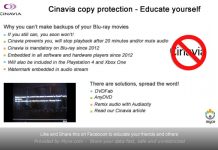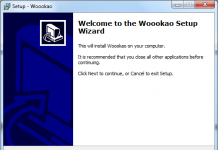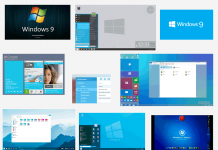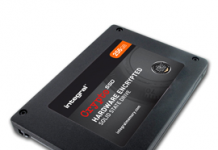 Imagine this: you have just bought your very first DVD-recorder, you come home and you want to start backing-up your expensive DVD titles so that you don't have to worry about your kids anymore, who seem to think that DVD discs make excellent Frisbees. So, you put your original DVD title in your recorder only to find out that;
Imagine this: you have just bought your very first DVD-recorder, you come home and you want to start backing-up your expensive DVD titles so that you don't have to worry about your kids anymore, who seem to think that DVD discs make excellent Frisbees. So, you put your original DVD title in your recorder only to find out that;
- it's protected against ripping and thus copying the contents of the disc to your hard disk doesn't work, and
- even if you do succeed in ripping the contents of the disc, the files don't fit on your recordable DVD since the latter can only hold 4.4GB of data while the original DVD is more than 7GB in size.
Besides the ongoing DVD format war between DVD-RW (minus) and DVD+RW (plus), which is causing confusion amongst consumers, these two problems are very common and are causing even more confusion. The first problem is easily bypassed (we'll get back to this later on this page) but the second problem is more interesting. Since the original DVDs are often larger than 4.4GB (the maximum amount of data that a DVD-recordable disc can hold) you're left with three options:
- you can copy the main movie only, with only one audio stream and only one or even no subtitles, or
- you can split the original movie onto two (or even more) DVD-recordable discs, or
- you can copy the entire DVD but the movie will have to be compressed (transcoded) to fit on the DVD-Recordable disc.
In this article we're going to take a look at some of the software packages that are available today with which you can copy your DVD movies. We'll take a look at the produced video quality of each software package and at how much time the software needs to accomplish its task.
To make a more fair comparison we've split up this article into two sections: movie only and full DVD. Movie only means that only the main movie was copied, including the main audio stream and one subtitle. Full DVD of course means that we copied the complete DVD, including all audio streams, subtitles and extra's.
In this article we're going to compare the following software packages:
- CloneDVD version 1.1.7.1
- DVD2one version 1.2.0
- DVD Shrink version 2.3
- DVD X Copy Xpress version 2.5.2
- Pinnacle InstantCopy version 7.1.1
Ripping:
Almost every DVD disc is encrypted nowadays which prevents you from simply dragging and dropping its contents to your hard disk. There are several tools available which can easily bypass this problem simply by decrypting the DVD's contents. The most popular tools for this job are SmartRipper and DVD Decrypter.
Both tools are extremely easy to use so we won't go into detail on how you can decrypt you DVDs. For this article we used SmartRipper to rip the entire DVD to our hard disk using the program's File Mode (in this mode SmartRipper will simply rip and decrypt all the files on the DVD).
DVD9 vs. DVD5:
Before we get started it's important to clarify the terms 'DVD5' and 'DVD9'. As we already mentioned at the beginning of this article a normal DVD disc is normally larger in size than a DVD-recordable disc. A recordable DVD is a single-sided disc with a single layer that can hold up to 4.38GB of data. Recordable DVDs and original DVDs of a size smaller than or equal to 4.38GB are also referred to as DVD5.
As said, commercial DVDs are often larger in size and they can be up to around 8GB in size maximum. These single-sided, double-layered DVDs are also referred to as DVD9. DVD-recorders, as of yet, do not support DVD9 discs and can only record to DVD5 discs.
Test Machine:
For the tests we'll be using the following hardware configuration:
- Motherboard: GigaByte GA-7VAXP
- Processor: AMD AthlonXP 2100+ (1.74GHz)
- RAM: 512MB (PC2700)
- GFX: ASUS V8200 (GeForce 3 Ti200)
- Hard Disks: DiamondMax 40+30GB (7200rpm)
- DVD-Recorder: Plextor PX-504A
- Monitor: Iiyama VisionMaster 1451 19" (1280*1024@85Hz)
The Windows XP Professional operating system is installed on our test machine. Let's continue with an overview of the speeds each program needed to compress our DVD titles, on the next page.










